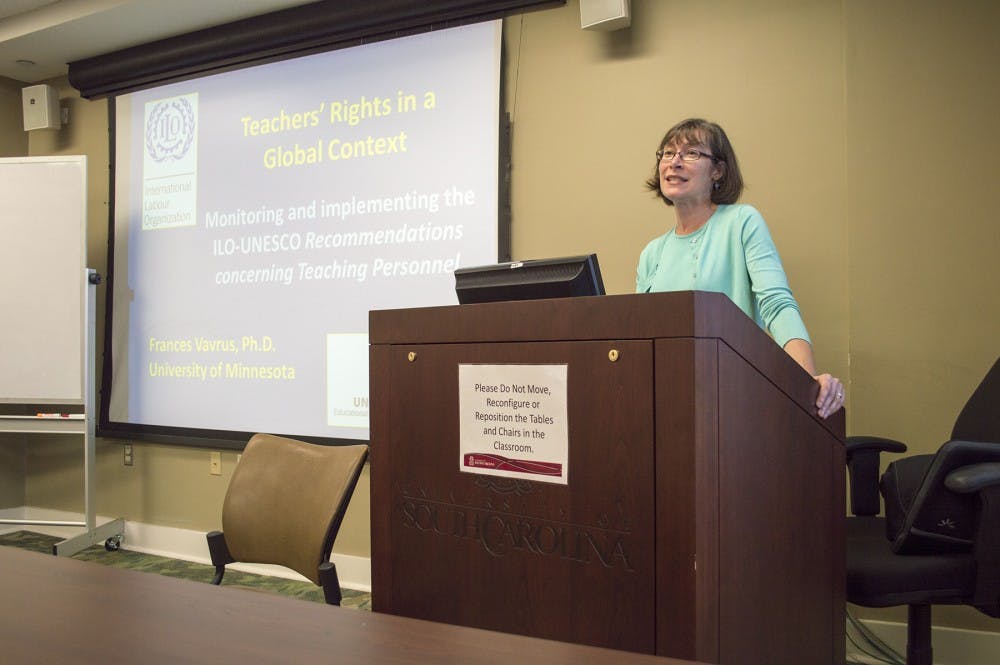Wednesday afternoon, Dr. Fran Vavrus of the University of Minnesota continued her visit to USC by giving a public talk on “Teachers’ Rights in a Global Context” in the Maxcy College classroom.
Vavrus is a professor of comparative and international development education and codirector of the University’s Interdisciplinary Center for the Study of Global Change. She has been involved in education and research in Tanzania over the past 23 years.
Several students and professors were present for the forum. Second-year education student Emma Jette expressed her interest in the topic.
“I’m studying abroad next semester, so I think it would be good to have an understanding of what teaching is like in other countries,” Jette said.
A member of the Committee of Experts on the Application of the Recommendations concerning Teaching Personnel (CEART), Vavrus began the discussion with facts on teaching conditions around the world. The issues with the conditions she discussed included teachers in the European Union working more than the maximum hours and teachers in African countries going months without receiving wages.
“In a recent report we were given as committee members … there was a complaint by teachers in the Gambia and West Africa saying they’d been working for seven months without a paycheck,” Vavrus said.
Vavrus touched on the rights and job security of tenured teachers as opposed to the majority of educators who have short-term contracts.
“One of the benefits [of being a faculty member with tenure],” she said, “is that we have protections as to what we can say and write. We can turn to our political leaders and say ‘This isn’t right.’”
The CEART is a committee that meets every three years to review global trends in education and teaching and make relevant recommendations concerning them. This committee also reviews allegations of violations of their 1966 and 1997 recommendations.
Vavrus described an example of one the CEART’s allegation cases.
A junior high school teacher in Tokyo publicly condemned a government-sanctioned history textbook as a “forgery of history” for its coverage of Japan’s role in World War II. The teacher offered alternative materials to the students, and the Japanese government responded by reducing her salary and eventually firing her.
“[The teacher] was removed from teaching and sent for two years to a re-education program,” Vavrus said. “And during this program, she was put in a room without windows for the entire school day. She was asked repeatedly to apologize for her criticism of the textbook, and she refused.”
Vavrus and the CEART review cases such as the Tokyo example as an effort to ultimately point out where a violation of the 1966 or 1997 recommendations occurred. The committee writes responsive letters to urge governments and/or school systems to review their policies so that they are consistent with their recommendations.
“Our task is to ‘name and shame’ governments that aren’t representing their teachers fairly and are violating these conventions,” Vavrus said.
First-year biology student Madison Yost responded to the discussion by acknowledging the effectiveness of Vavrus’s presentation.
“I’ve always thought it’d be interesting to think of [education] on a global scale, so [Vavrus] really helped to kind of connect the dots,” Yost said.
Overall, Vavrus maintained a need for professional freedom, institutional autonomy and accountability and freedom of both lower and higher education teaching personnel.
“The idea here is that teachers are experts, they ought to be treated as experts and have opportunities for continuous professional development,” Vavrus said.

